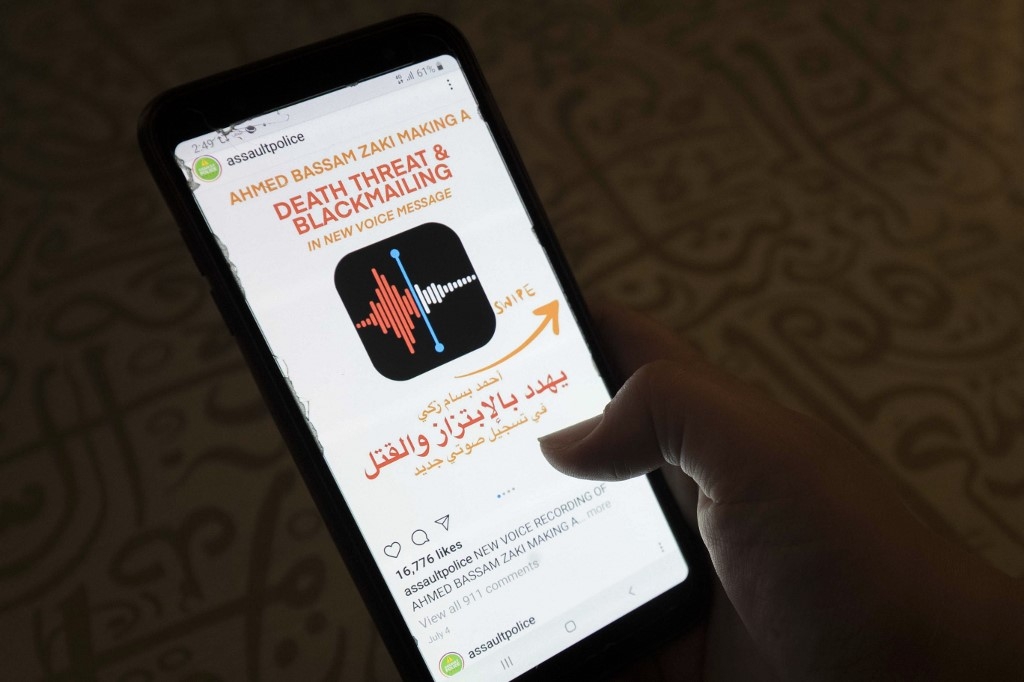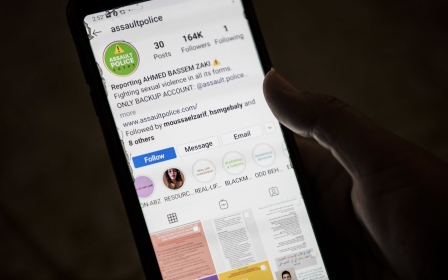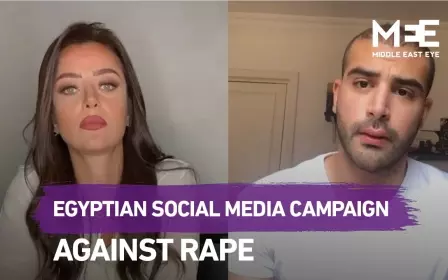Cairo court begins high-profile 'Egyptian MeToo' case

An Egyptian court on Saturday began hearing a high-profile case of blackmail and sexual assault that released a wave of accusations against prominent men in Egypt.
Former university student Ahmed Zaki was charged by the public prosecutor with "sexually assaulting three girls under the age of 18 and threatening them along with a fourth girl with disclosing matters related to their honour".
New MEE newsletter: Jerusalem Dispatch
Sign up to get the latest insights and analysis on Israel-Palestine, alongside Turkey Unpacked and other MEE newsletters
Zaki attended a closed session of the court, a lawyer from the defence team, Ahmed Ragheb, told the Thomson Reuters Foundation. He could face a life term or death sentence if the prosecution proves rape with evidence, Reuters reported.
Although allegations against Zaki, in his early 20s, had been made before, authorities reacted after the claims went public on independent Instagram and Twitter accounts run by a campaign titled "Assault Police," which encouraged his alleged victims to share evidence of his behaviour with the account's administrators to be used during investigations.
The accounts received more than 100 complaints related to Zaki, who is from a wealthy family, dating back to his high-school years.
#Metoo
The case attracted widespread attention from media, religious figures and women's groups in a country where rights defenders say sexual harassment or abuse often goes unpunished.
A 2017 Thomson Reuters Foundation poll found Cairo to be the most dangerous megacity for women, and 99 percent of women in Egypt interviewed by the United Nations in 2013 said they had experienced sexual harassment.
After Zaki's arrest, hundreds of women started to speak up on social media about abuse, sparking a #MeToo Movement, exposing several men and also revealing a high-profile rape case that occurred in a Cairo hotel in 2014.
In August, the public prosecution arrested two suspects in that case and said seven others had fled the country and it was pursuing them.
On 25 September, the public prosecution said Lebanon had handed over three men accused in the case while two others had fled.
Middle East Eye reported, however, that the state had arrested several witnesses, levelling a cocktail of allegations against them including "drug abuse, inciting debauchery, inciting homosexuality and lesbianism, and making up fake allegations on social media to promote false cases of violence against women".
Responding to the growing public debate over women's safety, parliament passed a law in August giving women the automatic right to anonymity in a bid to encourage more to report sexual assaults.
"Zaki's case has been shocking, as it put into debate a deeply rooted tradition of accusing the victim not the harasser and justifying his actions," said lawyer Reda Eldanbouki, executive director of the Women's Center for Guidance and Legal Awareness.
Egypt criminalised sexual harassment in 2014, but rights groups say the law is rarely put into action.
Despite legislation and civil society efforts to address the problem, surveys have shown that nearly 60 percent of women have been the target of this form of violence in public spaces, and an equal proportion of men have admitted to harassing women in public.
Middle East Eye delivers independent and unrivalled coverage and analysis of the Middle East, North Africa and beyond. To learn more about republishing this content and the associated fees, please fill out this form. More about MEE can be found here.





